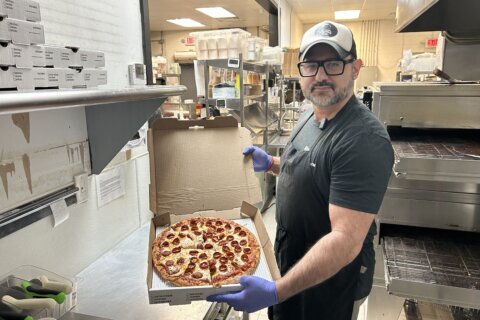WASHINGTON — Sexual slavery can happen anywhere — even in the D.C. area, and efforts are underway to combat it.
A local technology strategy firm gathered technology companies, government agencies, and experts for a hackathon challenge at George Mason University during the weekend.
The Expedition Hacks series brought together techies and tech companies, federal agencies, experts and others to try to make a dent in this highly profitable global criminal industry.
Participants were charged creating innovative tools to combat human trafficking.
It’s the Tysons. Virginia-based company’s first event that was held near home.
“We had a retired police officer from Fairfax County a detective in human trafficking,” said Christine Jung, president of Blue Compass and creator of Expedition Hacks.
Jung said some information about the extent of local human trafficking was surprising to some attendees.
“He said that every high school in Northern Virginia has at least one case of human trafficking.”
Jung tells WTOP winning projects include a tool to map high trafficking routes so company travelers can avoid those areas and also alert others they’re safe. Another prize winner “created something with block chain. They were showing how agencies at the federal and then local law enforcement can work together to have a trusted chain of data and that can help with data around people, data around places … to help find victims.”
Another winner created AI facial recognition app that can connect with security cameras in hotels — places where trafficking activity happens.
“So it would scan faces constantly and then if it found a face that matched a face cache, then it would alert the local authorities. So a lot of great technology that came out of this short, 36-hour hackathon,” Jung said.
“Previous hackathon included the impact of food security on national security, environmental conservationism, big data, [and] disaster response. So there were a lot of things that related to a specific federal agency mission. This is our first pro bono hackathon that we did without a real end customer in mind.”
“I think this is a very good case of showing how collaboration can happen from federal to local academia and industry, and it was around a very good cause. And I think when people come together and they start with a collaborative stance, a lot of great things can happen. I’m really proud of the people that were in the room. I consider everyone that was in the room saints because they gave up their time and money to be there.”
And it may not be the last one.
“We were talking about making it a repeated event — just for human trafficking. So we’ll look into that.”







